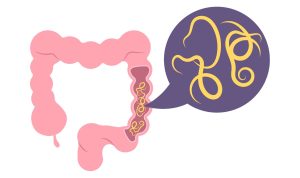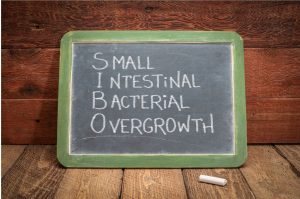
BLOATING…..It’s that frustrating feeling when your stomach feels uncomfortably full, swollen, or distended. For many people, especially women, bloating can go beyond physical discomfort—it can affect self-confidence and daily life.
You know the feeling: your belly is so swollen it looks like you’re pregnant, making it difficult to fit into your favorite clothes. Even that sleek dress or those jeans you planned to wear suddenly feel too tight. The discomfort can be overwhelming, leaving you feeling sluggish and uneasy, not to mention the embarrassment that often comes with it.
Bloating can keep you from enjoying social events or attending a party you were looking for. You feel self-conscious, and the discomfort makes it hard to engage or have fun fully. For many women, bloating isn’t just an occasional annoyance—it’s a regular issue that impacts their sense of well-being. You don’t have to endure this alone. Finding the root cause and addressing it through a functional wellness approach can help you regain control and feel like yourself again!
At Cherish Functional Wellness, we specialize in functional and holistic wellness, looking beyond surface symptoms to address the root cause of digestive issues. Let’s explore what might be contributing to your bloating and gas, and how our tailored wellness approach can help you get relief.
What Causes Bloating and Gas?
From the foods you eat to your overall gut health, many factors contribute to bloating and gas. Here’s a breakdown of some of the most common causes:
1. Dietary Triggers
Certain foods can cause bloating and gas, especially those high in fermentable carbohydrates, like beans, broccoli, onions, and dairy products. High-FODMAP foods are notorious for causing gas due to poor digestion and fermentation in the intestines. Other triggers include carbonated drinks, processed foods, and artificial sweeteners.
2. Leaky Gut and Its Role in Bloating and Gas
Leaky gut syndrome, characterized by increased intestinal permeability, allows undigested food particles, toxins, and bacteria to enter the bloodstream. This triggers inflammation and immune responses, leading to digestive discomfort. Inflammation can slow digestion, causing food to ferment in the intestines, which produces excess gas. Additionally, a leaky gut can result in food sensitivities, as undigested particles are misidentified as threats, exacerbating bloating. An imbalance in gut bacteria, known as dysbiosis, further contributes to gas production, creating a cycle of discomfort that leads to chronic bloating and gas symptoms.

3. Gut microbiome Imbalances
The health of your gut microbiome plays a huge role in digestion. An imbalance in gut bacteria, known as gut dysbiosis, can lead to the fermentation of undigested food, creating gas and bloating. If you’ve been dealing with ongoing discomfort, you may need to support your gut with probiotics, prebiotics, or a personalized nutrition plan.
4. Small Intestinal Bacterial Overgrowth (SIBO)
SIBO is a condition where excess bacteria accumulate in the small intestine, leading to the fermentation of food before it’s properly digested. This can cause bloating, gas, and even pain. At Cherish, we can order the SIBO breath test to identify the type of SIBO and come up with a personalized holistic treatment plan. Remember, it is not like conventional treatment, it’s more complex and comprehensive than taking pills often including dietary changes, herbal antimicrobials, or other supplements like digestive enzymes, bile salts, probiotics, etc.
5. Low Stomach Acid
Low stomach acid can prevent the proper breakdown of food, especially protein, leading to undigested food reaching the intestines where it ferments, causing gas. Many people are unaware that heartburn and bloating can sometimes result from too little stomach acid, rather than too much. Correcting low stomach acid with digestive enzymes or other holistic strategies can improve digestion and reduce gas.
6. Low Bile Production
Bile is essential for breaking down fats and ensuring smooth digestion. If bile production is low, undigested fats can accumulate in the intestines, leading to bloating and gas. Bile salts are a helpful supplement for those with bile insufficiency, especially if you’ve had your gallbladder removed.
7. Stress and bloating:
When we live a chronic stressful life, it can cause various digestive discomforts including bloating, loose stool, and nausea. Further stress worsens digestive issues like ulcers, IBS, etc.
8. Parasite Infestations and Bloating
Parasitic infections, such as Giardia, Blastocystis hominis, or Entamoeba histolytica, can lead to chronic bloating, gas, and digestive discomfort. Parasites often trigger inflammation in the gut, impair nutrient absorption, and damage the gut lining. This can lead to symptoms like:
- Persistent bloating and gas
- Diarrhea or constipation
- Abdominal pain
- Nutritional deficiencies
Parasitic infections may go undetected for long periods, especially if symptoms are mild. However, these infections can disrupt the gut microbiome, leading to gut dysbiosis, which may exacerbate bloating and digestive distress over time.
9. Food Poisoning and Long-Term Bloating
Food poisoning, caused by bacteria like Salmonella, E. coli, or Campylobacter, can also lead to long-term bloating and digestive problems. After an acute episode of food poisoning, some people develop post-infectious irritable bowel syndrome (PI-IBS), where bloating and gastrointestinal symptoms persist long after the infection clears.
This can occur due to:
- Gut microbiome imbalances: The bacteria causing food poisoning may disrupt the normal balance of gut bacteria, leading to ongoing issues with digestion.
- Inflammation of the gut lining: Food poisoning can cause damage to the gut lining, making it more sensitive and prone to bloating, gas, and food intolerances.
- Small Intestinal Bacterial Overgrowth (SIBO): In some cases, the aftermath of food poisoning may contribute to the development of SIBO, further compounding bloating and digestive discomfort.
Functional Medicine’s Approach to Bloating and Gas
As you can see, the factors for bloating and gas are many. What is the root cause of your bloating? At Cherish Functional Wellness, we don’t just treat the symptoms—we investigate the root causes. Our functional medicine approach involves a detailed health assessment, functional medicine lab workup, lifestyle modification, and a personalized plan tailored to your unique digestive needs. The wellness plan will be unique to each individual’s needs. In general, here’s how we manage bloating and gas:
- Comprehensive Functional Evaluation: We’ll assess your digestive health, food, lifestyle, and stress levels to uncover the potential triggers of your bloating and gas. We will do a comprehensive functional workup to evaluate the nutritional level, breath test, stool test, urine test, etc as appropriate. We use local and national lab companies for functional health testing services.
- Lifestyle and Nutritional Guidance: Lifestyle modification is the foundational step to chronic health conditions. A food plan tailored to your specific gut health issues can work wonders. We provide the exact food plan and recipes to follow to reduce bloating and inflammation so you don’t need to google and be more confused.
- Gut Healing Protocols: We may recommend removing inflammatory triggers and adding gut-healing nutrients or digestive enzymes to improve food breakdown. Based on your root cause and testing results, we will personalize wellness treatment. Book your appointment today to find out more about what your wellness plan would look like.
- Stress Management: Stress plays a major role in digestive health. Stress-reducing techniques like journaling, praying, arts, yoga, meditation, or breathing exercises, can support your nervous system to improve your digestion.
Make Your Appointment at Cherish Today
Tired of living with bloating and gas? Ready for a solution that works? Let us help you uncover the root causes of your digestive issues. Work with an Institute of Functional Medicine certified functional medicine practitioner who will develop a personalized, holistic plan tailored to your unique needs. We are based in Buffalo, New York providing care globally.
At Cherish, we believe that the path to better health starts with understanding your body. Reach out today to schedule your appointment. Together, we’ll work on a strategy that brings relief and restores balance to your digestive system.
Click here to book your consultation now. Let’s get started on your journey to better gut health and a life free from bloating and gas.
References:
- Berg, E. (2023). “Use Bile Salts for SIBO or Small Intestinal Bacterial Overgrowth.” Dr. Eric Berg Website.
- Levy, E., et al. (2018). “Gut microbiota and its metabolites: FODMAPs and IBS.” Journal of Gastrointestinal Disorders.
- Muller, N., von Allmen, N. (2005). “Recent insights into the mucosal reactions associated with Giardia lamblia infections.” International Journal for Parasitology, 35(13), 1339-1347.
- Pimentel, M., et al. (2020). “Small Intestinal Bacterial Overgrowth: Clinical Features and Diagnosis.” Gastroenterology Clinics of North America.
- Spiller, R., & Garsed, K. (2009). “Postinfectious irritable bowel syndrome.” Gastroenterology, 136(6), 1979-1988.
- Stark, D., Barratt, J., Van Hal, S., Marriott, D., Harkness, J., & Ellis, J. (2009). “Clinical significance of enteric protozoa in the immunosuppressed human population.” Clinical Microbiology Reviews, 22(4), 634-650.

Great article! I really appreciate the clear and detailed insights you’ve provided on this topic. It’s always refreshing to read content that breaks things down so well, making it easy for readers to grasp even complex ideas. I also found the practical tips you’ve shared to be very helpful. Looking forward to more informative posts like this! Keep up the good work!